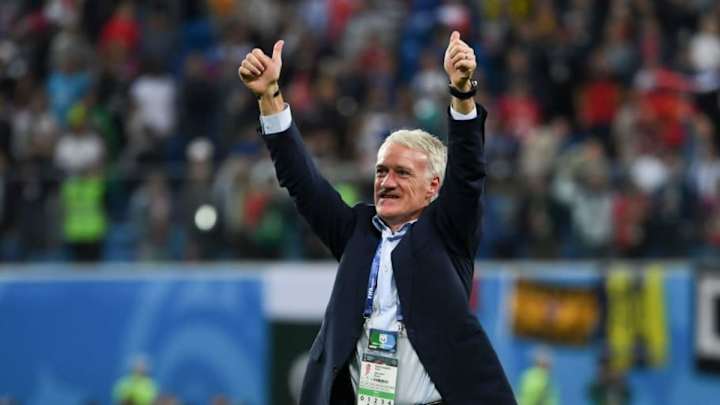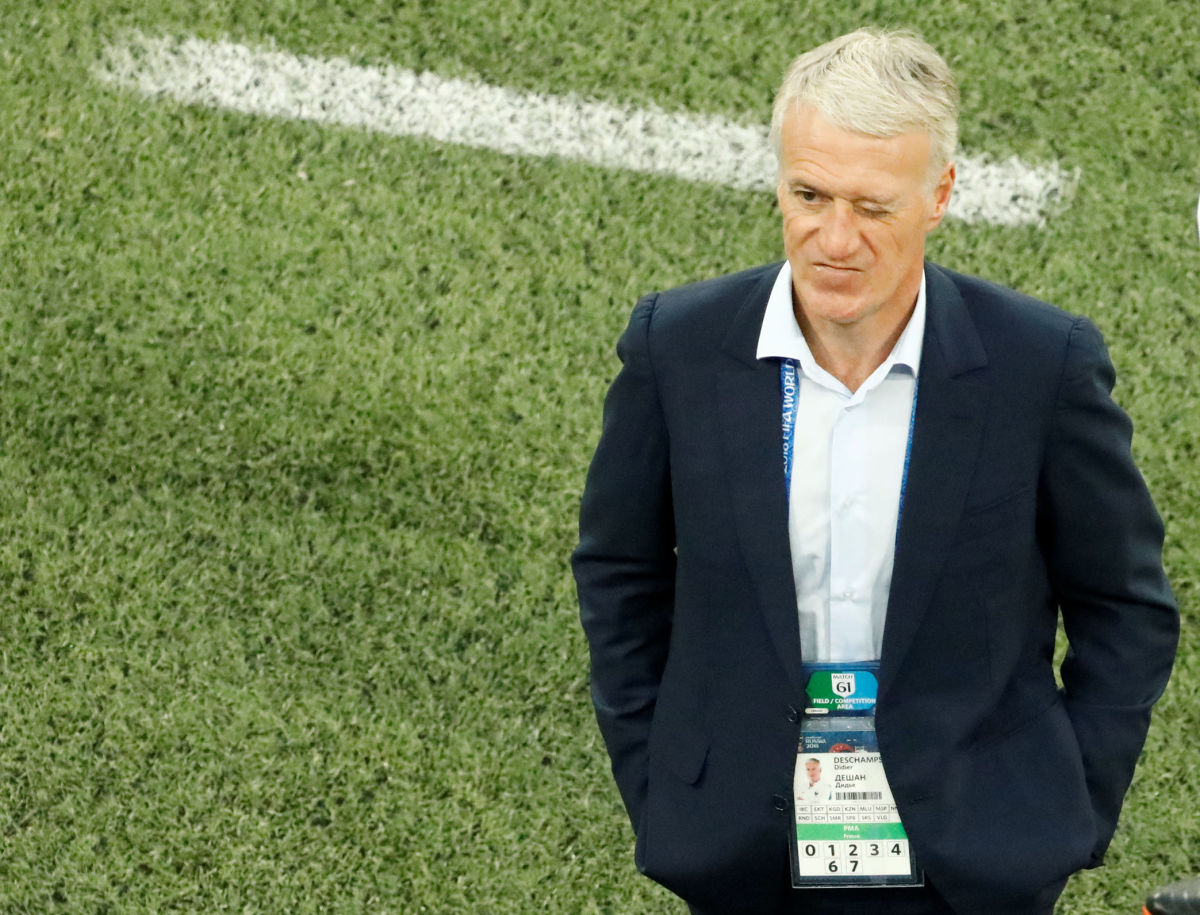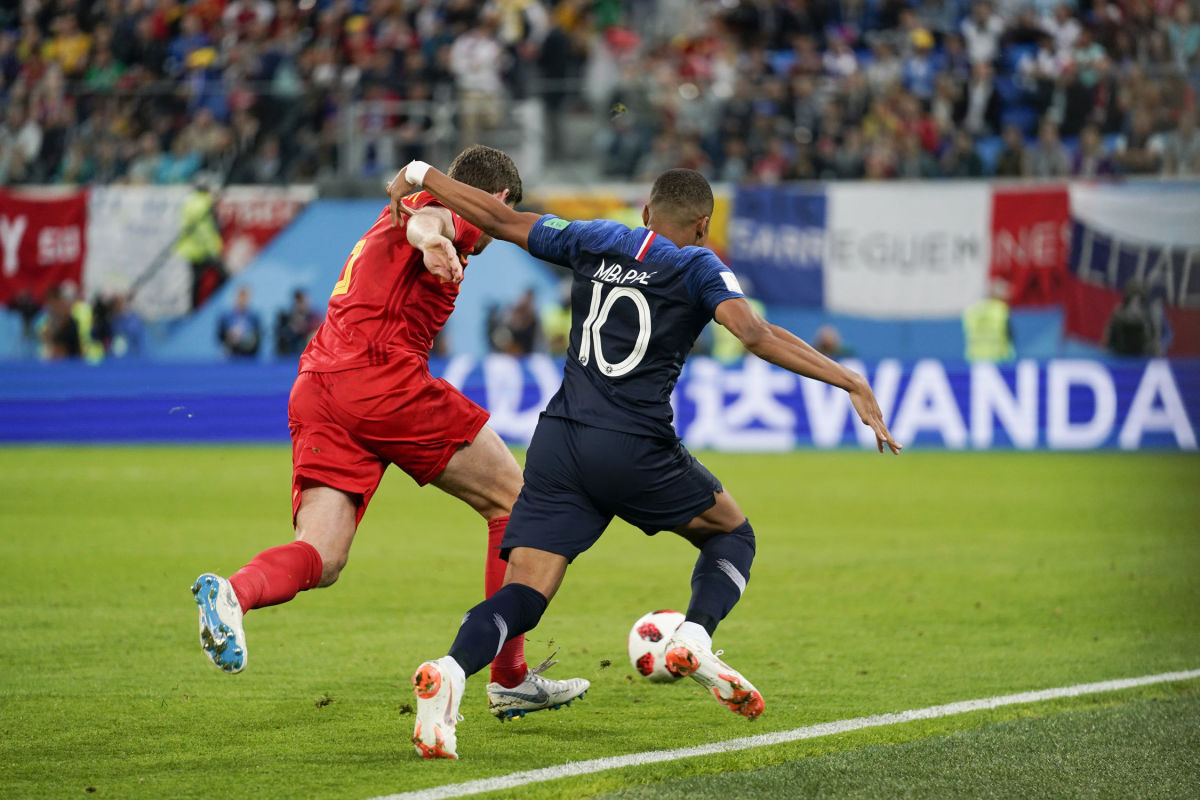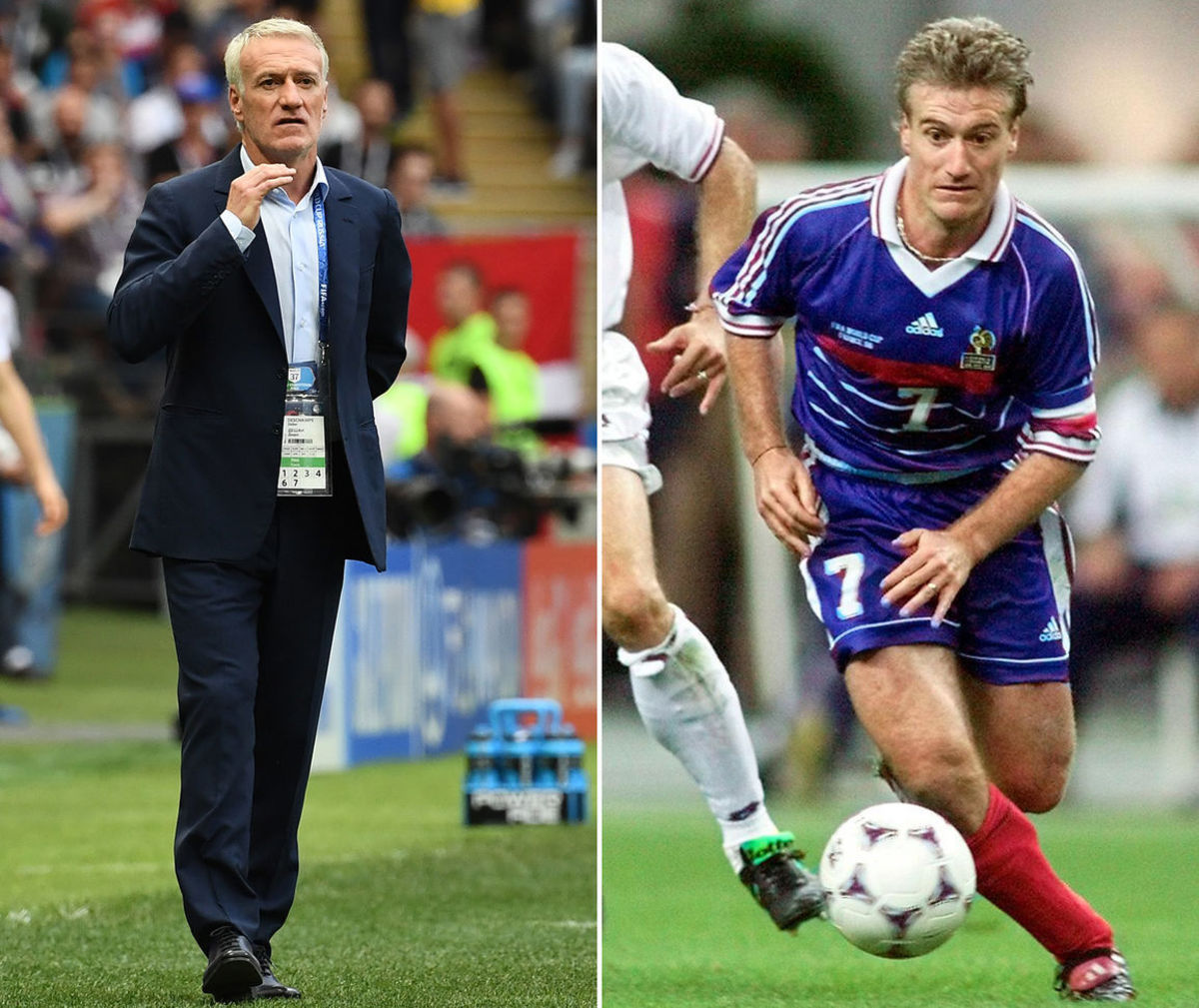Why Didier Deschamps Is Still a Problem Regardless of Leading France to the World Cup Final

There seemed an inevitability to France's semi final victory over Belgium in Saint Petersburg on Tuesday night. Their recently discovered grit and backbone was put to emphatic use, and after a few scares from a seriously scary Belgian attack in the first half, they slowly suffocated them (and thus the general excitement) in the second.
So was this the redemption of Didier Deschamps? The moment when the much maligned coach compelled even his most ardent of dissenters to doff their caps in respect? No. No it wasn't. Pas assez, pas encore, Didier.
Because, as we're talking about the French, let's be frank. What has the 49-year-old achieved? A handy breakdown (which may or may not have prompted this piece) from my 90min colleague will suffice.
On paper (or in 280 characters or less) a highly decent and commendable track record. But, by the same token, it is also unequivocally par for the course.
Admittedly, it's hard to knock him for 2014. In possession of a strange and stilted squad, comprised of ageing has-been's and promising but unpredictable youngsters, France impressed with their flair before respectably succumbing to Germany.
Euro 2016 was another matter entirely. Armed with the best squad at the tournament, home support and a favourable route to the semi final, they momentarily came of age against the German side that had overpowered them two years prior, before bottling the final against Portugal.
Deschamps' hand in this can't be underestimated. Not only did he evidently let complacency seep into his side in the build up to the final, he also persisted with a starting XI that belied his nominally pragmatic sensibilities.

The continued use of Moussa Sissoko in lieu of N'Golo Kante, effective as his marauding runs were, ultimately opened his side up to more trouble than was necessary. Though Paul Pogba, Blaise Matuidi and Kante have all categorically improved in the intervening years, the balance and poise that they have so integrally provided in 2018 casts a dubious shadow over the system used in 2016.
Speaking of 2018, let's get topical. Because some have argued that France's embattled triumph over their bordering rivals was the 49-year-old's pièce de résistance. The staple of this argument seems to be that against both Uruguay and the Red Devils, Les Blues out-thought and out-muscled their opponents with defensive fortitude, whilst retaining the attacking bite that their glut of forwards portend to.
#CRO make it to their first ever #WorldCup Final . . .https://t.co/UFT9HhVZ1B
— 90min (@90min_Football) July 11, 2018
But four glaring caveats emerge from this observation. Firstly, the drop off from Edinson Cavani to Cristhian Stuani would flatter any defence, and accordingly Suarez was too frustrated with his new strike partner to offer any kind of thrust back.
Secondly, this newfound structural strength has conveniently coincided with the resurgence/arrival of Rafael Varane to the realms of best young(-ish) centre back in World football. The Real Madrid man's header was the catalyst in the quarter final, and he was then imperious in the semi final, putting together arguably the tournament's most dominant individual display.
And yet, segueing nicely into the third qualm, they were still put to the sword by Belgium in the opening minutes. Sure, wise teams soak up their fair share of pressure, before pouncing - a simple narrative to attribute to this game. But is it accurate? Or were they significantly helped by some uncharacteristically erratic (at least for this tournament) finishing by Romelu Lukaku, among others.

Last, but by absolutely no means least, you have Kylian Mbappe. The ultimate get out of jail free card - terrorising defences with his impish skill, roadrunner legs and lethal R9-esque finishing.
Le Phénomène (patent pending) has been magical throughout, unsurprisingly showing maturity beyond his years to light up the tournament.
The 19-year-old is the kind of trump card that no France manager has had since, well, a young Thierry Henry, yet it still took Deschamps the majority of the group stage to properly unleash him. Even then, you could argue a lax Argentine defence has done more to boost his confidence than the tactician.
He is a generational talent, in one of the most talent filled generations football has ever seen - every up and coming footballer seems to be Paris 'born and bred' these days, or otherwise cultivated at Clairefontaine. It is no surprise that since the institution's establishment in 1988, the team have got to five major tournament finals, winning twice.
Of course, Deschamps captained his country to both of those titles, and would become only the third man in history to then manage them to World Cup glory as well, after Mario Zagallo and Franz Beckenbauer. Ironically, it was said in 1998 that Deschamps was the real manager of that group, leading from the front.

His leadership skill was never in doubt. His tactical acumen, however, has been legitimately lambasted time and again. While Olivier Giroud is a sincerely capable footballer, under a more competent attacking manager he would never occupy the linchpin role he currently does. He wouldn't need to.
Come Sunday, it may not matter, and will almost certainly be forgotten in the aftermath, but France had the chance to cement a legacy as one of the great sides in World Cup history in 2018. Under the current regime, they will still be heroes to a nation, but not a touchstone for the world as a whole, like Brazil in 1958, '70 and 2002, Argentina '86, even Spain in 2010.
Don't get me wrong, not every team has to play good football - there's a reason there's so few sides who have done so and won. Indeed, sh*thousing your way to glory can be spectacular at times, but when you have the capacity to thrill and fail to do so, it seems wasted.
As it is, we will begrudgingly applaud their achievements, but not with the same awe as we should be. And that's down to Deschamps. Oh, and for the record, any managerial legacy that is founded on the out-witting of Roberto Martinez is null and void. NULL AND VOID.
